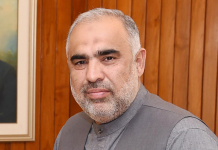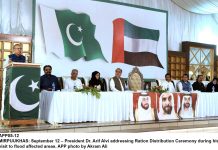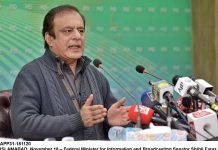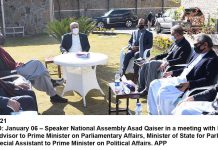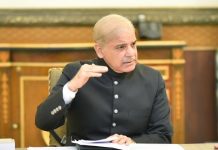उड़ान नियंत्रण इलेक्ट्रॉनिक्स एपीपी डाउनलोड प्रवेश द्वारSpeakers at a policy conclave on E-waste management held at COMSATS University Islamabad (CUI) on Friday called for devising a revised policy with consolidated approach towards handling of E-waste.
The event was arranged with support of Dr. Jabir Syed from the Meteorology Department and Dr. Tahir Mumtaz Awan from Incharge China Study Centre. Prof. Dr. Sajjad Ahmed Madani said that according to a live counter of e-waste in 2022, over nine million tons of electrical items have been disposed of. He recommended the usage of 3R’s and returning products to manufacturers rather than throwi
ng them away.
Dr Jabir Syed, Assistant Professor, CUI, gave an overview about E-waste which includes all the electronics that are not being used anymore. As per the collected statistics, 53 million tons of E-waste is being produced every year. He mentioned that China has banned the solid waste in 2019 and they have extracted 1 ton of gold from E-waste. Prof. Dr. Perihan Kurt- Karakus, Busra Technical University, Turkey joined the conclave via video recording.
She talked about the whole sampling strategy of their research process and gave a detailed description of the method which is being used by them to deal with the E-waste.
Moving on, Dr. Zaigham Abbas, Deputy Director, Ministry of Climate Change, as the first keynote speaker listed out various pro
jects which include Mina Matta Convention and Basel Conventions. He supp
osed that we should also go for extracting precious metals from the E-waste. He sadly underlined the open burning of the E-waste in some cities of Pakistan. He explained that there are no adequate regulato
ry measures for handli
ng the E-waste properly.
Dr. Zaigham concluded with the remarks that we need to comply with international conventions and create mass awareness amo
ng the common people. He recommended a sound environment for the implementation of the policy made for the handling of the E-waste. Dr. Tahir Waseem, Pakistan Science Foundation, proposed some policies which included increasi
ng the linkages between media academia and industry and provision of scholarships to the students for studying abroad and having an exposure to the international world.
Prof. Kevin C. Jones, Lancaster University, United Kingdom also attended the session via video recording. He felt pressured
to be a partner in such an important project. His proposition was that E-waste is not properly handled in Pakistan irrespective of the fact that Pakistan is the second largest importer.
Dr. Tahir Mumtaz Awan and Dr. Jabir Syed moderated the discussion session by explaini
ng the agenda items to the discussants. Dr. Ashiq Muhammad, Professor Bahria University, provided the audience with some of the loopholes in the process of making policies for the E-waste management including lack of technical expertise and lack of coordination between stake holders.
Dr. Sohail Yousaf, Professor Quaid-e-Azam University, supp
osed that the E-waste is contributing a lot towards climate change and Pakistan has yet not developed a proper policy. Learning from advanced countries like the USA, Japan and the United Kingdom, Saima William represented the Pakistan Mission Society and urged the policy makers to make a revised policy and provide consolidated solutions for handli
ng the E and other hazardous waste.





